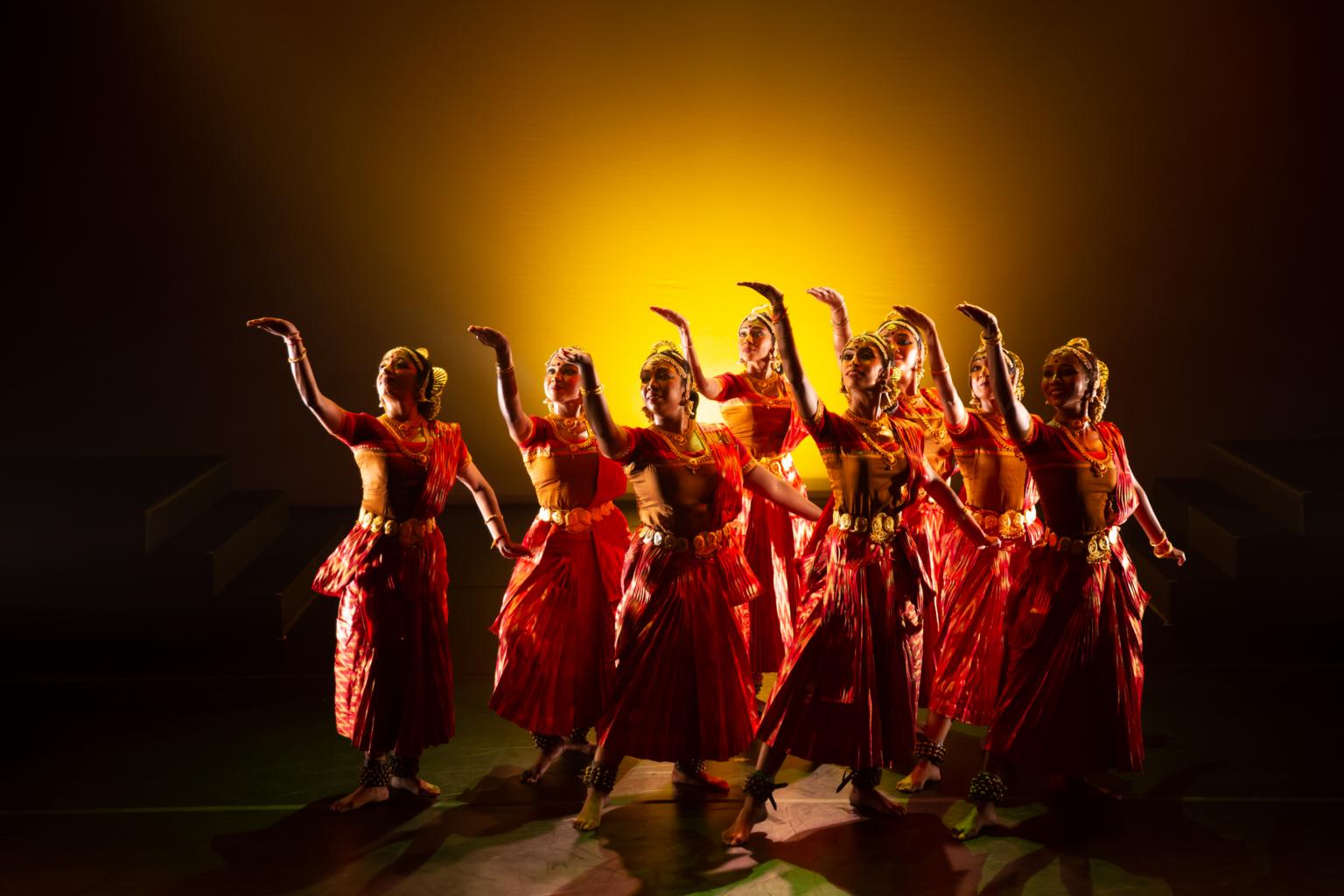COVID-19 SPECIAL
Artists defend value of creative work to society after survey sparks debate
Sign up now: Get ST's newsletters delivered to your inbox

A still from last year's Marabu – The First Ripple. The concept and choreography were done by dance doyenne Santha Bhaskar.
PHOTO: LIJESH PHOTOGRAPHY
SINGAPORE - Artists play an important role in society and their work cannot be disregarded, arts practitioners said, after a survey in The Sunday Times sparked discussion about the value society places on artists.
The survey, which asked 1,000 respondents what jobs are most crucial in keeping Singapore going, found "artist" topping the list of roles deemed non-essential.
The finding sparked anger and sadness online among members of the arts community, at a time when arts venues are closed as a result of the pandemic.
The survey, which also found that doctors and nurses (86 per cent) and cleaners (78 per cent) were deemed most essential, was part of a feature that looked at the discrepancy between the value to society of essential workers, such as cleaners, and what they earn.
An "essential worker" was defined in the survey as "someone who is engaged in work deemed necessary to meet the basic needs of human survival and well-being, such as food, health, safety and cleaning".
When contacted, arts practitioners told The Straits Times that while an artist's job might not seem essential in the context of the coronavirus pandemic, this did not reflect its true value in society.
Nominated MP (NMP) for the arts Terence Ho, 51, said: "Jobs like hawker, deliveryman and doctor are more tangible as they meet our immediate needs. People already enjoy a lot of arts and culture content online for free, so they don't feel the immediate importance of it."
Mr Ho, who is also executive director of the Singapore Chinese Orchestra, added: "If you cut away entertainment and arts programmes, can you imagine what will happen? People will say that they are essential."
Similarly, playwright and children's novelist Tan Tarn How, an adjunct senior research fellow at the Institute of Policy Studies, said: "Imagine if the question was whether they consumed any art during the circuit breaker. I have no doubt that almost everyone would have said yes. That is how 'non-essential' artists are."
Cartoonist and graphic novelist Sonny Liew, 45, said respondents had probably thought too narrowly about what art was and forgotten about the materials they consume, such as books, movies, TV shows, music, games and infographics.
He said: "All these things have played a critical role in helping us understand and get through this pandemic and the circuit breaker. Perhaps creative work is still stuck in a blind spot, similar to how the work of cleaners and garbage collectors was underappreciated before the Covid-19 crisis began."
Poet and literary critic Gwee Li Sui, 49, understands why people might think artists are not essential in a pandemic, but said the arts are generally undervalued.
"We are coming to, but have not reached, the point where we recognise the place of the artist and the dimension of culture in society."
But Gwee also pointed to how the survey did not define the job of artist: "It's a whole spectrum, ranging from actors to painters, poets, commercial artists and artists who are very abstract in what they do."

A group of 26 members of the arts community who wrote to ST said that while they supported the feature's focus on underappreciated occupations, they felt the survey's listing of top non-essential jobs could "reinforce misconceptions of how some jobs and workers do less for society than others".
"We believe every meaningful job that serves the community should be respected and viewed as essential, however untimely," said the group, which included artist Terence Tan of community arts group Artsolute, dance doyenne Santha Bhaskar of Bhaskar's Arts Academy and former NMP Audrey Wong.
Asked what can be done to improve the public perception of the value of the arts, Mr Ho said: "If you convert viewership into dollars and cents, if we make people pay for content, perhaps they will value the arts more."
Noting how the Government has provided extra funding to artists and the arts under efforts such as the Arts and Culture Resilience Package, he said: "We also need the private and public sectors to sustain the arts ecosystem. This is our spirit and our culture."
When contacted, the National Arts Council said the last few editions of its biennial Population Survey on the Arts, which covers all art forms, "confirm that the majority of Singapore recognise the wide-ranging benefits of the arts".
The survey was last conducted in 2017.
The council added that it recognises that there is still more work for it "to build a deeper appreciation of the arts and recognition of our artists especially during this time when the arts and culture can play a role to uplift spirits and remind us of the ties that bind us".


